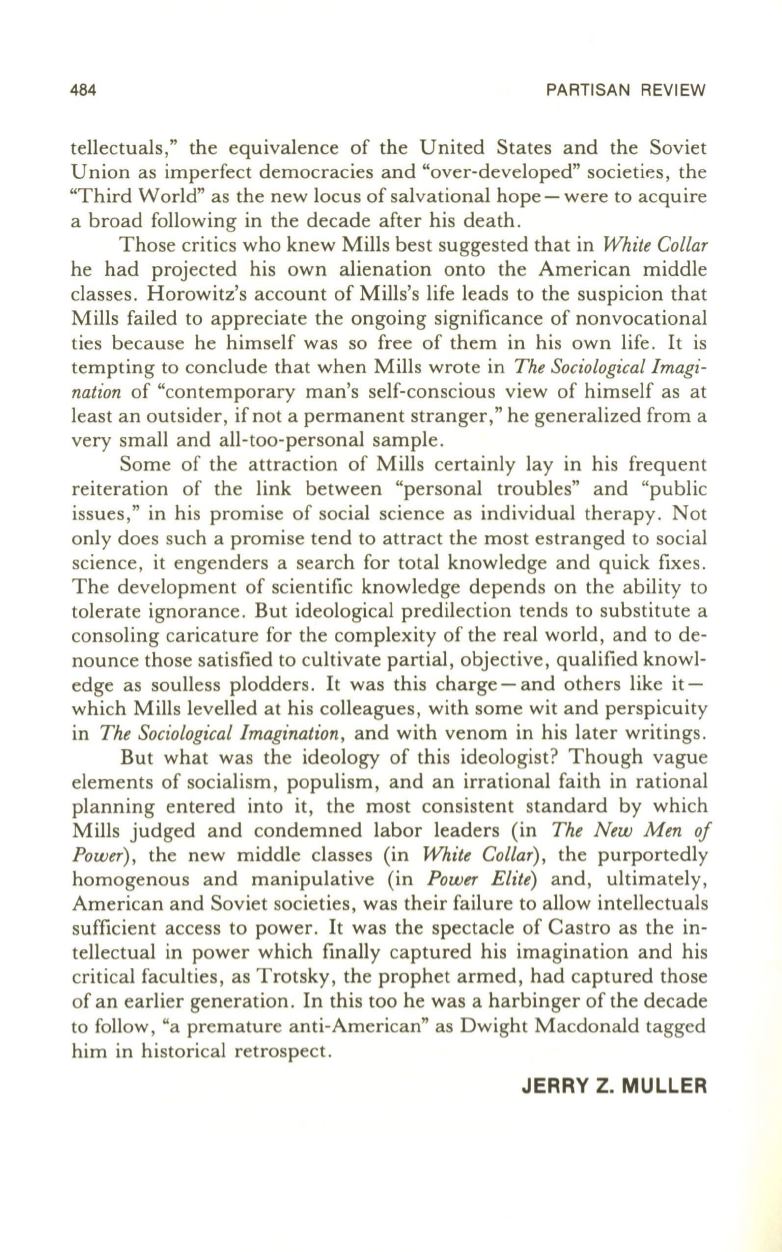
484
PARTISAN REVIEW
tellectuals," the equivalence of the United States and the Soviet
Union as imperfect democracies and "over-developed" societies, the
"Third World" as the new locus of salvational hope-were to acquire
a broad following in the decade after his death.
Those critics who knew Mills best suggested that in
White Collar
he had projected his own alienation onto the American middle
classes. Horowitz's account of Mills's life leads to the suspicion that
Mills failed to appreciate the ongoing significance of nonvocational
ties because he himself was so free of them in his own life.
It
is
tempting to conclude that when Mills wrote in
The Sociological Imagi–
nation
of "contemporary man's self-conscious view of himself as at
least an outsider, ifnot a permanent stranger," he generalized from a
very small and all-too-personal sample.
Some of the attraction of Mills certainly lay in his frequent
reiteration of the link between "personal troubles" and "public
issues," in his promise of social science as individual therapy. Not
only does such a promise tend to attract the most estranged to social
science, it engenders a search for total knowledge and quick fixes.
The development of scientific knowledge depends on the ability to
tolerate ignorance. But ideological predilection tends to substitute a
consoling caricature for the complexity of the real world, and to de–
nounce those satisfied to cultivate partial, objective, qualified knowl–
edge as soulless plodders. It was this charge - and others like it–
which Mills levelled at his colleagues, with some wit and perspicuity
in
The Sociological Imagination,
and with venom in his later writings.
But what was the ideology of this ideologist? Though vague
elements of socialism, populism, and an irrational faith in rational
planning entered into it, the most consistent standard by which
Mills judged and condemned labor leaders (in
The New Men oj
Power),
the new middle classes (in
White Collar),
the purportedly
homogenous and manipulative (in
Power Elite)
and, ultimately,
American and Soviet societies, was their failure to allow intellectuals
sufficient access to power.
It
was the spectacle of Castro as the in–
tellectual in power which finally captured his imagination and his
critical faculties, as Trotsky, the prophet armed, had captured those
of an earlier generation. In this too he was a harbinger of the decade
to follow, "a premature anti-American" as Dwight Macdonald tagged
him in historical retrospect.
JERRY Z. MULLER


